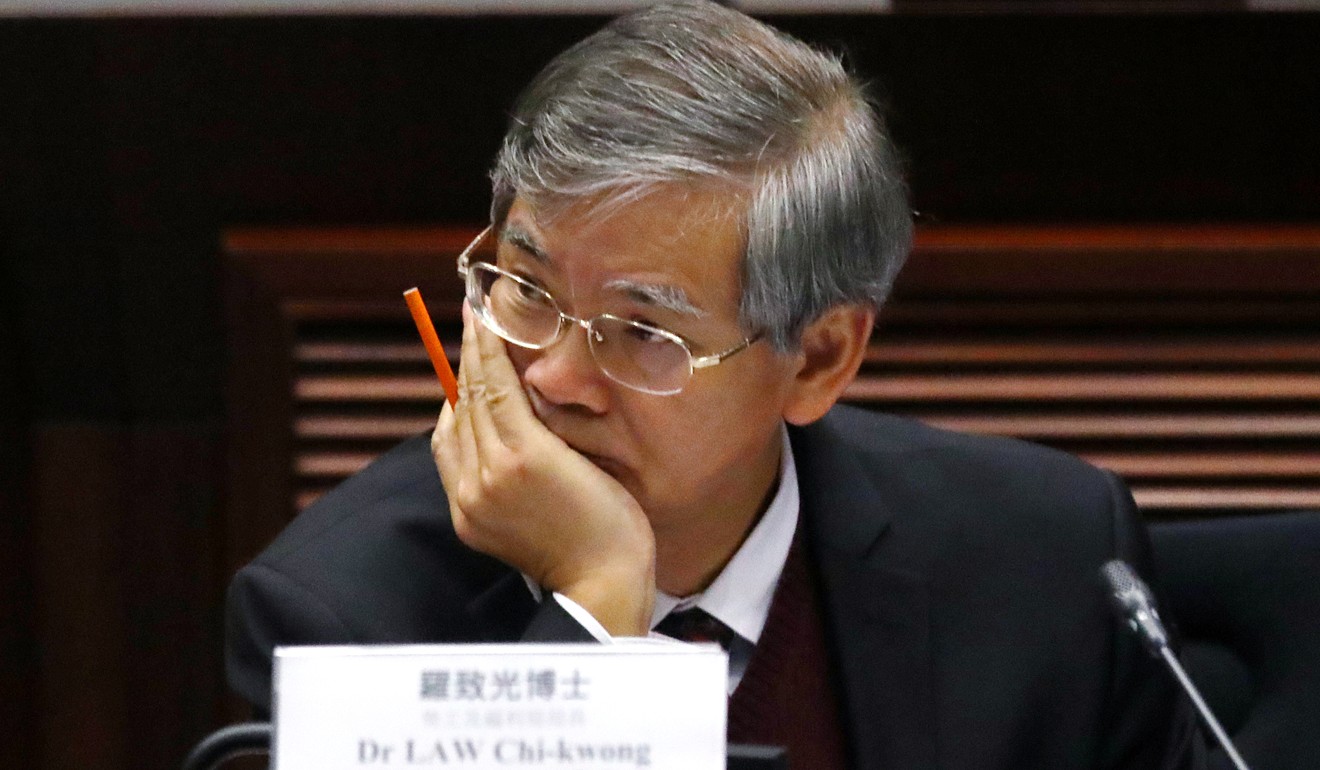
Threat from artificial intelligence sees Hong Kong education fund doubled as city workers are urged to prepare for world of the future
- Labour secretary Law Chi-kwong announces upgrade to Continuing Education Fund
- Changes will include raising of cap level from HK$10,000 to HK$20,000

An enhanced subsidy for adults in Hong Kong to acquire new skills is the government’s latest effort to prepare workers for redundancy as artificial intelligence and technology develop, the city’s welfare minister said on Sunday.
In his regular blog post, Secretary for Labour and Welfare Law Chi-kwong said the upgraded Continuing Education Fund starting this month was part of the strategy to respond to the potential impact of AI development on future demand for labour.
“The future development of AI and technology may massively replace many existing job types,” Law said. “One of [the bureau’s] responsibilities is how to make good preparation for the changes in the future labour market.”

The enhancement on the fund includes an increase of the cap of the subsidy from HK$10,000 to HK$20,000, a raise of applicants’ upper age limit from 65 to 70, and an expansion of courses covered by the fund.
The lower age limit is 18. That means that before they reach 71, all Hong Kong adults can use the subsidy multiple times until the amounts reach the cap.
But the subsidy can only be used to cover up to 80 per cent of course fees, meaning the applicants need to pay for at least 20 per cent of the costs.
Some 715,000 applicants who have already used the previous fund before the upgrade will also be able to apply for the additional HK$10,000.
Law expected that an additional 4,000 courses under 14 disciplines such as urban planning, computer science and business management would be covered by the fund, on top of the existing 7,800 courses.
Law Pui-shan, a policy research officer for the Hong Kong Catholic Commission for Labour Affairs, said the enhancement had made the fund more practical.
But she said the amount of subsidy was still too small to sustain lifelong education, citing her own experience of one course that cost about HK$10,000.
She said there was a lack of policy support for lifelong education such as standard working hours.
“Long working hours are very common among Hong Kong employees. How will they have time to attend new courses?” Law said. “I think the government’s goal for the fund is perhaps too grand.”
It was the first time the fund had been increased since its launch in 2002. The upgrade was announced in Financial Secretary Paul Chan Mo-po’s budget speech in February last year.